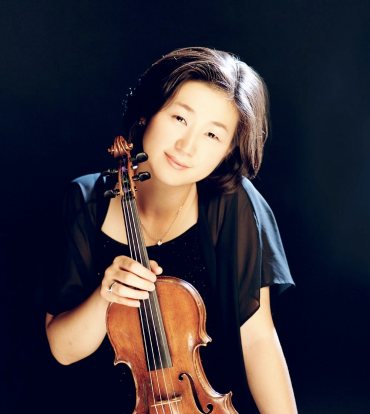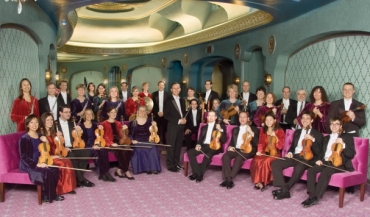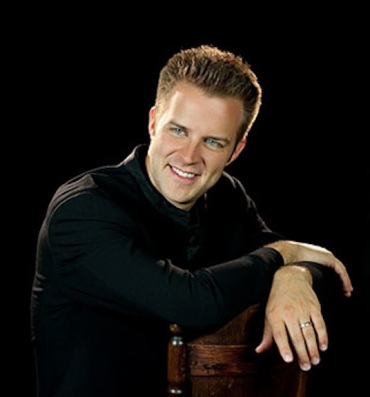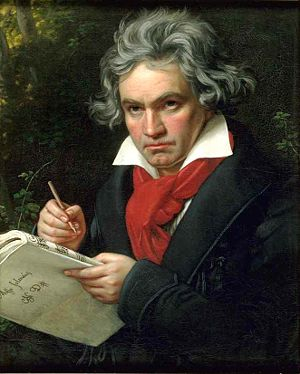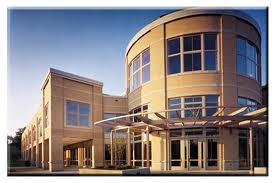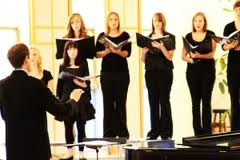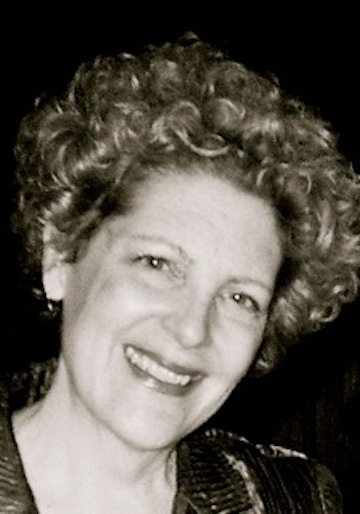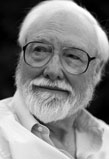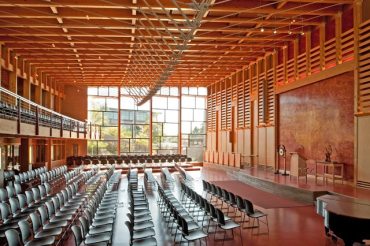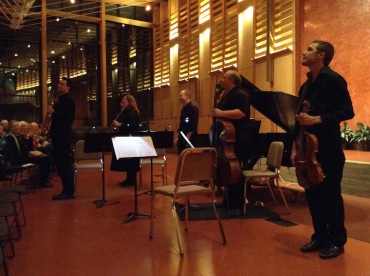The Well-Tempered Ear
Classical music: Why is Beethoven so popular? And why do all-Beethoven concerts work so well? Pianist Bryan Wallick answers these questions even as he prepares to play the “Emperor” Concerto this Friday night in the all-Beethoven concert by the Wisconsin Chamber Orchestra.
3 Comments
By Jacob Stockinger
This Friday night at 8 p.m. in the Capitol Theater of the Overture Center, the Wisconsin Chamber Orchestra (below) and pianist Bryan Wallick, who won the Vladimir Horowitz Prize and is returning to Madison, will perform under longtime WCO music director and conductor Andrew Sewell an all-Beethoven concert to end the WCO’s indoors Masterworks season.
The program includes the “Leonore” Overture No. 1, the Piano Concerto No. 5 “Emperor” and the Symphony No. 7.
Tickets are $15-$62.
For more information, visit: http://www.wcoconcerts.org/performances/masterworks-v
The Ear asked Bryan Wallick to explain why all-Beethoven concerts work so well and why Beethoven remains so popular with the general public. (The Madison Symphony Orchestra will also close its season with Beethoven, specifically the Symphony No. 9 (“Choral” or “Ode to Joy”) on May 8, 9 and 10.)
Wallick (below) kindly responded to an email Q&A:
Beethoven, along with a handful of other composers, including Mozart and Tchaikovsky, is one of the few composers who can make up a single-composer concert that also attracts the public. What accounts for that?
Beethoven had the luxury of living a longer life than many of the famous composers, so his compositional output is larger than that of many other composers.
His compositional style also changed dramatically over the course of his life, and there aren’t too many composers whose music is so categorically defined as early, middle and late works.
At the Juilliard School, the famous Beethoven class taught by the late Jacob Lateiner (below) described five different categories of musical progression in Beethoven’s career. This diversity gives many different variations and possibilities of programmatic combinations that are stimulating and exciting.
However most all-Beethoven programs often program works from his middle or late period, and the music is just that good that we are happy to only hear Beethoven. He was perhaps the greatest genius to ever put his pen to music, in a different capacity than Mozart.
What role has Beethoven played in your career? Are there works in particular that you were drawn to as a student or a performing professional?
Beethoven has been a huge influence in my career, and probably most any pianist’s career as he wrote so much music for the piano. His 32 sonatas are one of the greatest musical achievements ever produced, so there is always an unending supply of great piano music that most pianists never even get to in their careers unless they become Beethoven specialists.
As a student, I remember a general rule that I was given that I should always be learning some Beethoven sonata while learning everything else that I was working on. As a child, I often listened to Beethoven sonatas before I went to bed, and this music was very motivational in driving me to develop my technique to the level where I could perform these pieces.
Beethoven (below) consistently ranks as the general public’s favorite classical composer. Why is that, do you think?
As I said earlier, the diversity of works is enormous, but I think the general public isn’t that aware of the huge diversity of works. Those are mostly precious gems for musicians to savor, but the tonal language is very acceptable to a wide audience. Plus, the stories of his fiery temper and his deafness add a certain mystery to his genius that can interest a wide audience.
In the work which I will play, the “Emperor” Piano Concerto, it is harmonically very simple, he often just moves between a I chord and a V chord, but how he does it is so interesting and the emotional depths which he contemplates with these very simple chords is astounding. How he is able to encapsulate his struggles and personal hardship in his music is perhaps the reason why his genius could exceed that of Mozart.
Is there an aspect of Beethoven that you think the public needs to pay more attention to and that you intend to emphasize in your interpretations?
I wish the public had the time and opportunity to become more familiar with a broader range of Beethoven’s music. They often get to hear the famous works, but when one understands and sees the connections between the famous pieces and the ones written in between, the appreciation for what he does in the famous works only becomes greater.
One can always strive to hear more things in the music, and the great experience of performing these works is that even though we’ve played this music many, many times, we as musicians still keep finding new things in this music, and the experience always keeps growing and changing.
Is there anything you would like to say or add?
I love this concerto for many reasons, but one of the most interesting aspects of this piece is how simple it is, and I believe it is a struggle for many pianists to leave this piece alone and not to do too much with it. (Below is the notebook manuscript of the opening of the “Emperor” Concerto from measure 3 until the second theme enters.)
The phrasing is very logical, well written, and if a pianist tries to do too much with it, somehow the music doesn’t work. For example, I feel there is a lot of room for a pianist to manipulate and turn phrases 1,000 different ways in the fourth piano concerto.
But this piece has a structure, logic and direction that I feel a pianist must just accept, appreciate, respect; and they must find a simple way to bring this to an audience. (You can hear the acclaimed Beethoven interpreter and pianist Rudolf Serkin and conductor Eugene Ormandy with the Philadelphia Orchestra perform the “Emperor” Concerto in a YouTube video at the bottom.)
I’ve heard many performances of this piece where pianists try to over-interpret things, so my goal is to just let this great music speak on its own with just little “comments” here and there from myself.
Tags: Arts, Beethoven, Bryan Wallick, choral music, Classical music, concerto, Emperor Concerto, Eugene Ormandy, Jacob Lateiner, Jacob Stockinger, Juilliard School, Juilliard School of Music, Leonore Overture No. 1, Ludwig van Beethoven, Madison, Madison Symphony Orchestra, manuscript, Mozart, Music, Music of Germany, Orchestra, Overture Center, Philadelphia Orchestra, Piano, Piano concerto, Rudolf Serkin, symphony, United States, University of Wisconsin-Madison School of Music, University of Wisconsin–Madison, Vladimir Horowitz, Wisconsin Chamber Orchestra, Wolfgang Amadeus Mozart, YouTube
Classical music: University of Wisconsin-Madison and Edgewood College finish up their seasons this weekend with major choral and instrumental concerts.
Leave a Comment
By Jacob Stockinger
Both the University of Wisconsin-Madison and Edgewood College finish up their seasons this weekend with major choral and instrumental concerts.
Here are details:
UNIVERSITY OF WISCONSIN-MADISON
This Saturday night, May 2, at 8 p.m. in Mills Hall, the UW Choral Union, UW Symphony Orchestra and soloists Mimmi Fulmer (below top), Elizabeth Hagedorn (below middle) and Thomas Leighton (below bottom), all under the baton of conductor James Smith, will perform.
They will give ONE PERFORMANCE ONLY of the Symphony No. 2 in B-flat major (“Lobegesang” or Hymn of Praise) by Felix Mendelssohn (below). You can hear it in a YouTube video at the bottom.
Admission is $15 for the general public, $8 for students and senior.
For more information, here is a link:
http://www.music.wisc.edu/events/choral-union-with-uw-symphony-orchestra-3/
For program notes, here is another link:
http://www.music.wisc.edu/wp-content/uploads/2014/06/Lobesang-notes.pdf
EDGEWOOD COLLEGE
Edgewood College (below) will host two concerts this weekend.
On FRIDAY NIGHT, May 1, at 7 p.m. will be a choral concert that features several groups.
For the Friday night concert, choral groups will perform, including the Women’s Choir, Chamber Singers (below), and Campus-Community Choir.
Conductors include Kathleen Otterson (below top), Albert Pinsonneault (below bottom) and Sergei Pavlov.
On SUNDAY AFTERNOON, May 3, at 2:30 p.m. is an instrumental concert.
Sunday afternoon’s concert features several instrumental ensembles, including the Saxophone Quartet, Guitar Ensemble, Concert Band (below top in a poster form a past concert), and Jazz Ensemble. Conductors include Daniel Wallach, Nathan Wysock (below bottom) and Walter Rich.
Sorry, The Ear has received no word about the specific program for either concert.
Both concerts will take place in the St. Joseph Chapel, 1000 Edgewood College Drive.
Admission to each concert is $7, and will benefit music scholarships. Tickets will be available at the door.
Tags: Arts, Chamber music, choral music, Classical music, Concert Band, Edgewood College, Felix Mendelssohn, guitar, Jacob Stockinger, Jazz, Music, Orchestra, Saxophone, saxophone quartet, Symphony No. 2 "Lobgesang", University of Wisconsin-Madison School of Music, University of Wisconsin–Madison, UW Choral Union, UW Symphony Orchestra, Violin, vocal music, Wisconsin, YouTube
Classical music: The Mosaic Chamber Players end the season with memorable performances of piano quintets by Faure and Brahms.
2 Comments
By Jacob Stockinger
Here is a special posting, a review written by frequent guest critic and writer for this blog, John W. Barker, who also provided performance photos. Barker (below) is an emeritus professor of Medieval history at the University of Wisconsin-Madison. He also is a well-known classical music critic who writes for Isthmus and the American Record Guide, and who for 12 years hosted an early music show every other Sunday morning on WORT FM 89.9 FM. He serves on the Board of Advisors for the Madison Early Music Festival and frequently gives pre-concert lectures in Madison.
By John W. Barker
For its final concert of the season, the Mosaic Chamber Players (below) gave a program Saturday night at the First Unitarian Society of Madison. It combined two of the great quintets for piano and strings: the second of that type, in C minor, Op. 115, by Gabriel Fauré (1847-1924); and the only one if its kind, in F minor, Op. 34, by Johannes Brahms (1833-1897).
So close together, one would think, and yet, so far apart. Contrasts result from distinct differences between the two composers in both nationality and personality — between Gallic eloquence and German burliness.
The work by Fauré (below) was completed in 1921, by which time Debussy was dead and Ravel, who was Faure’s student, was in his prime. It is one of a half-dozen chamber pieces with which the composer rounded out his final years — almost, one might think, as an extension of his long output of piano writing.
Its expansive four-movement format is conventional in scope and with a range of expression. But its heart is a long and rapturous slow movement that flows with the unfolding elegance of one of Fauré’s piano nocturnes. (You can hear the slow movement in a YouTube video at the bottom.)
By contrast, the quintet by Brahms (below) is one of the masterpieces of his early chamber-music writing. It dates from 1862, when Richard Wagner was between the composition of “Tristan und Isolde” and “Die Meistersinger von Nürnberg.”
Starting as some ideas for a symphony, it exists also in Brahms’s own adaptation of it as a sonata for two pianos. Its four movements are more conventionally conceived than Fauré’s, combining masterful Classical craftsmanship with powerful Romantic urgency.
The performances involved five players from the group. The two violinists alternated in the first chair: Laura Burns for the Fauré, Wes Luke for the Brahms. Micah Behr and Michael Allen played viola and cello, respectively, while pianist Jess Salek (below) was the anchor as pianist, just as he is as the group’s guiding spirit.
These players have worked together before, but not as a consistent ensemble, although they suggested a close collegiality that more established groups might envy. They fully captured the moods, nuances and strengths of the two works.
If there were problems, it had to do with some balances, above all disadvantaging the viola. Some of the explanation could be in the choice of the cavernous Atrium Hall (below, in a photo by Zane Williams) as performing venue, rather then the more intimate Landmark auditorium, the original meeting house of the First Unitarian Society, designed by Frank Lloyd Wright. The Atrium’s highly reverberant acoustics overwhelmed the players’ sound, and, at the same time, prompted over-exertions in volume output, to the detriment of carefully calculated ensemble.
The size of the hall also pointed up the painfully small size of the audience. There are always weekend competitions for attention, especially in the spring. Still, the Mosaic group is only beginning to develop sufficient promotion and publicity for its activities. Potential audience members need to be made aware of what the group offers.
What it does offer is one of the high-quality sources of chamber music performance in Madison’s very rich spectrum of events in that category.
The next Mosaic season should win the wider attention it greatly deserves.
Tags: Arts, Brahms, Cello, Chamber music, Classical era, Classical music, Classical style, Debussy, Die Meistersinger von Nürnberg, Early music, Faure, First Unitarian Society of Madison, Frank Lloyd Wright, French music, Gabriel Fauré, Gallic, German music, History, Jacob Stockinger, Johannes Brahms, Madison, Madison Early Music Festival, Madison Symphony Orchestra, Medieval, MEMF, Mosaic Chamber Players, Music, nocturne, Piano, Piano Quintet, quintet, Ravel, Richard Wagner, Sonata, strings, Tristan und Isolde, two pianos, University of Wisconsin-Madison School of Music, University of Wisconsin–Madison, Viola, Violin, Wisconsin, WORT-FM 89.9, YouTube
Classical music: Meet composer Julia Wolfe, who won this year’s Pulitzer Prize in music for her oratorio about Coal Country.
Leave a Comment
By Jacob Stockinger
On Monday, the winners of the 2015 Pulitzer Prizes were announced.
You will hear a lot about the journalism recipients.
You will hear much, much less about the arts recipients.
So meet American composer Julia Wolfe (below).
Wolfe, who is associated with the group Bang on a Can!, won this year’s Pulitzer Prize in music for “Anthracite Fields,” her oratorio for chorus and sextet about families living in coal mining country.
Wolfe (below, at the piano in her home in a photo by Richard Perry of The New York Times) did a fine interview with the outstanding Deceptive Cadence blog for NPR or National Public Radio.
Here is a link to that interview:
And here is a link to her own website:
Finally, here is a haunting documentary video with excerpts from “Anthracite Fields” in a YouTube video. A recording of the complete work is scheduled to be released in September.
Tags: American, Anthracite Fields, Arts, Bang on a Can, Chamber music, choral music, Classical music, coal, coal country, Compact Disc, composer, Deceptive Cadence, Jacob Stockinger, journalism, Julia Wolfe, Madison, Music, National Public Radio, New York Times, NPR, oratorio, Pulitzer Prize, sextet, The New York Times, University of Wisconsin-Madison School of Music, University of Wisconsin–Madison, vocal music, Wisconsin, YouTube
Classical music: Even as the school year winds down, there are several noteworthy events and concerts at the University of Wisconsin-Madison School of Music this weekend.
Leave a Comment
By Jacob Stockinger
Even as the school year winds down, there are several noteworthy events and concerts at the University of Wisconsin this weekend.
FRIDAY
At 7:30 p.m. in Mills Hall, the UW Wind Ensemble will perform a FREE concert under director Scott Teeple.
The Wind Ensemble is the premier wind/percussion ensemble in the UW-Madison School of Music. Repertoire varies from classical wind compositions to contemporary works.
The Wind Ensemble actively commissions new works from world-renowned composers, often performing with internationally acclaimed soloists and guest conductors.
Jacob Klingbeil will assist as graduate student guest conductor.
YOUniversity Band will be side-by-side with community musicians
The program includes:
Gvorkna Fanfare by Jack Stamp
Baron Cimetieres Mambo by Donald Grantham
Irish Tune from County Derry by Percy Grainger
Starwars Trilogy, by John Williams/arr. Donald Hunsberger
SATURDAY
At 1:30 p.m. in Morphy Recital Hall, a FREE Doctoral Recital: Russian Literature and the Music Salon. It is a multimedia concert with narration.
This doctoral project, organized by pianist Oxana Khramova, involves several students and faculty members from various departments.
It will be devoted to writers and composers who were connected to St. Petersburg in their lives and works: Nikolai V. Gogol, Anna A. Akhmatova, Joseph A. Brodsky, Sergei Prokofiev and Alfred Schnittke.
Listeners will experience their masterpieces through the prism of Russian music, language and visual images. By attempting to combine literature, music and art. participants hope to recreate the atmosphere of St. Petersburg’s culture (as recreated in the museum photo below).
Participants include:
Oxana Khramova, piano, DMA candidate, School of Music, where she is a student of Christopher Taylor
with
Yana Groves, piano, DMA candidate, School of Music
Nicole Heinen, soprano, MM candidate, School of Music
Ilona Sotnikova, visual images and literature, PhD candidate, Department of Slavic Languages and Literature
Conor Ryan, narrator, Undergraduate Student, Department of Slavic Languages and Literature
At 4 p.m., in Mills Hall, the All-University String Orchestra will give a FREE concert under the baton of director Janet Jensen (below, in a photo by Katrin Talbot). Sorry, no word on the program.
From 4 to 6 p.m. the Wingra Woodwind Quintet will hold its 50th Anniversary Party at the University Club (below), 803 State St., next to the Humanities Building.
Embodying the Wisconsin Idea and serving as role models to our students, the Wingra Quintet has a rich tradition and will honor current and former members.
Former members who plan to attend are Robert Cole, flute, Marc Fink, oboe, Glenn Bowen, clarinet, Richard Lottridge, bassoon, Douglas Hill, horn, and Nancy Becknell, horn. (Below are photos from 1990 and 2010.)
A short program of 20 minutes is planned and then we will celebrate with hors d’oeuvres and beverages catered by the University Club. Everyone is invited to enjoy the food, music, and good company of current and former members of the Wingra Quintet.
Please RSVP to news@music.wisc.edu
Learn about the rich history of the WWQ here: http://www.music.wisc.edu/wingra-woodwind-quintet/
SUNDAY
At 1 p.m. in Mills Hall, the UW Women’s Chorus (below) and University Chorus will give a FREE concert. Anna Volodarskaya and Sarah Guttenberg will conduct.
This event is FREE. Registration is encouraged, but not required.
No program has been announced.
Tags: Akhmatova, Alfred Schnittke, Arts, Bassoon, Brodsky, Chamber music, choral music, chorus, clarinet, Classical music, flute, Fort Worth Star-Telegram, Gogol, Horn, Jacob Stockinger, Madison, Percy Grainger, Prokofiev, Russia, Russian literature, Russian music, salon, Schnittke, string music, strings, University of Wisconsin-Madison School of Music, University of Wisconsin–Madison, Violin, vocal music, wind instruments, winds, Wingra Woodwind Quintet, Wisconsin, Wisconsin Idea, women's chorus
